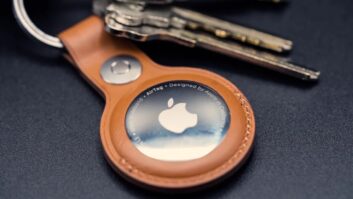I’ve never been a wheels guy. I somehow missed that gene. I grew up a normal red-blooded American boy but I never coveted my neighbor’s Porsche, or watched a complete NASCAR race. I was never the kid asking for a dirt bike or a four-wheeler. I never wasted my time building car models or reading hot rod magazines. I had a lukewarm relationship at best with my very small Matchbox car collection.
Cars have always been merely a means of transportation to me and not much else. I guess I can appreciate the designs of certain classic cars. My dad had a ’65 Mustang when I was little and he briefly owned a mid-70s model Corvette, but I remember liking them because my dad thought they were cool.
So when I found myself on the auto beat out of necessity at this month’s CES, I didn’t think much of it. I figured I’d catch the keynotes and the pressers and maybe learn the latest news on fuel efficiency and in-car entertainment.
I didn’t expect a front-row seat to a revolution.
There were few hotter topics at CES this year than the technological leaps and bounds forward by the global auto industry.
Ford, GM and Volkswagen chief executives all gave keynotes and each one of them had their feet planted squarely in the future.
They spoke of unprecedented connectivity, increasingly sophisticated driver-assist safety measures, and ever-increasing drive times and charge loads on electric vehicles. They spoke of the end of fossil-fueled cars in our lifetime (or at least yours …) and ultimately, the rise of the autonomous self-driving vehicle.
It was bold stuff and seemed more possible with every promise, with every new alliance announced, with every new technology collaboration signed.
They also spoke of investment and disruption and yes, even revolution. The possibilities of a new collaborative economy that replaces private vehicle ownership with massive minimal investment-style fleet use.
They spoke of the end of city traffic for good, the promises of a smart grid infrastructure that links every single car with every other car, sharing data and best routes for maximum performance. They mentioned an anticipated 90 percent drop in automobile accident casualties.
And they spoke of even more possibilities ahead, like solar-powered vehicles and fuel-cell powered models that produce minimal waste and what that waste is is pure water.
They spoke of competition, not among themselves but from traditional technology companies such as Apple, Google and Tesla. And I sensed a real esprit de corps in those discussions. It’s as if everyone is rooting for everyone else, pure-play capitalism be damned, because the end result of all this effort will be so good for the world that they couldn’t contain themselves. It was fascinating and more than a little inspirational.
During CES, statistics were released showing 2015 as the most profitable year ever for the major American car companies as a whole. Given the state of that industry just a few short years ago, that’s nothing short of a miracle. But it’s also telling.
As the auto industry increasingly embraced technology and reinvented its business practices, it not only overcame its immediate problems but it created a new paradigm, a new future for itself — one that may turn the whole business model on its head. And while other industries would no doubt run scared from such a prospect, this industry, with these bold leaders, have embraced it. Inspiring stuff!













